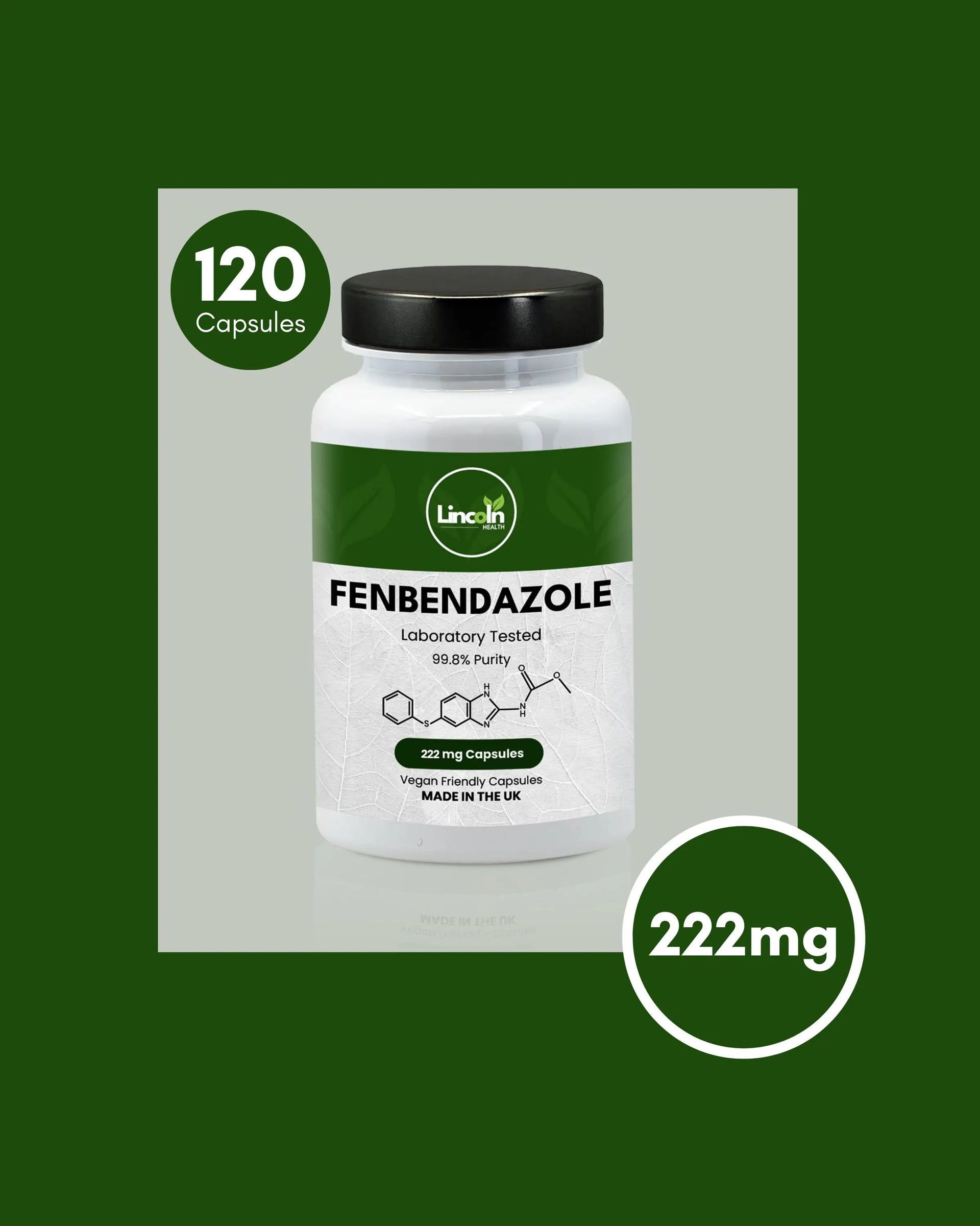Checking out the Devices Behind Fenbendazole and Its Influence On Animal Health
Fenbendazole is an extensively used anthelmintic known for its performance versus different parasites. Its main device entails the inhibition of microtubule development, which interrupts critical procedures in these pathogens. Past its antiparasitic residential properties, fenbendazole likewise shows up to improve immune responses and possesses anti-inflammatory advantages. Comprehending these complex results might disclose brand-new applications for pet wellness. Nevertheless, questions continue to be regarding its complete capacity and safety and security account.
The Pharmacokinetics of Fenbendazole
The pharmacokinetics of fenbendazole, a widely used anthelmintic in veterinary medication, involves the research study of its absorption, distribution, metabolic rate, and excretion within pet systems. After administration, fenbendazole is rapidly taken in from the intestinal tract, with peak plasma concentrations occurring within hours. Its circulation is influenced by variables such as tissue binding and lipid solubility, enabling it to penetrate various cells effectively. The medication undergoes considerable metabolism mostly in the liver, where it is converted into energetic and non-active metabolites. These metabolites play a role in the drug's overall efficacy and safety account. Excretion takes place mainly through feces, with a smaller percentage eliminated using urine. The half-life of fenbendazole differs among types, which affects dosing programs. Understanding these pharmacokinetic buildings is necessary for optimizing its healing usage and making certain reliable bloodsucker control in vet practices.
Systems of Activity Versus Parasites
Fenbendazole exerts its antiparasitic impacts mostly via the restraint of microtubule development in bloodsuckers. This disturbance influences their architectural honesty and cellular functions, leading to damaged basal metabolism. Because of this, the drug successfully endangers the survival and recreation of numerous parasitical organisms.
Inhibition of Microtubule Formation
Inhibition of microtubule formation stands for a critical system through which certain anthelmintic agents, consisting of fenbendazole, apply their effects on bloodsuckers. Fenbendazole binds to tubulin, a healthy protein that creates microtubules, interrupting the polymerization process needed for microtubule setting up. This disturbance impairs essential mobile features, consisting of mitosis, intracellular transport, and architectural stability. As microtubules play an essential duty in keeping the form and feature of parasitical cells, their restraint brings about cell cycle apprehension and ultimate fatality of the bloodsucker. This system is especially reliable against nematodes, as their reliance on microtubules for wheelchair and nutrient absorption makes them susceptible to fenbendazole. The inhibition of microtubule development is a critical element of fenbendazole's restorative effectiveness in vet medicine.
Disruption of Basal Metabolism
Disrupting power metabolism is another essential system whereby fenbendazole targets parasitical organisms. This anthelmintic alters the energy manufacturing paths within bloodsuckers, mostly affecting their capacity to produce adenosine triphosphate (ATP) By inhibiting sugar uptake and interfering with mitochondrial feature, fenbendazole limitations the power resources crucial for the survival and reproduction of these organisms. As a result, bloodsuckers end up being significantly prone to environmental anxieties and immune feedbacks. The disturbance in energy metabolic rate not just impacts the bloodsuckers directly yet additionally decreases their ability to take in nutrients, better harming their development - fenbendazole. On the whole, the disturbance of power metabolic rate represents a basic element of fenbendazole's efficiency versus numerous parasitic infections, adding significantly to improved pet health and wellness end results
Potential Side Effects and Security Account
The prospective negative effects and safety account of fenbendazole warrant mindful factor to consider, specifically in veterinary applications. While typically related to as safe, some animals may experience damaging responses, consisting of gastrointestinal disturbances such as throwing up and looseness of the bowels. Furthermore, neurological signs, although uncommon, have actually been reported in delicate people, highlighting the demand for monitoring throughout treatment.

Fenbendazole's safety in numerous varieties, consisting of dogs and cats, has actually been recorded, but dose and duration of treatment must be very carefully managed to reduce dangers. Expecting or lactating pets may likewise need special focus, as the effects on establishing fetuses or nursing children are not completely understood.
Normal veterinary examinations can aid minimize possible negative effects and ensure the medicine is carried out properly. Subsequently, while fenbendazole is an efficient anthelmintic agent, caution concerning its negative effects is important for keeping pet health.

Fenbendazole's Impact on Immune Feature
Fenbendazole has been kept in mind for its possible to regulate body immune system reactions in pets. Its anti-inflammatory buildings might add to boosted immune feature, providing a double benefit in handling health (fenbendazole). Recognizing these results is important for evaluating fenbendazole's duty in veterinary medicine
Immune System Inflection

Anti-inflammatory Properties
Anti-inflammatory impacts represent a substantial aspect of fenbendazole's influence on immune feature. Study indicates that fenbendazole might minimize the production of pro-inflammatory cytokines, which are crucial in mediating inflammatory actions. By regulating these cytokines, fenbendazole can potentially reduce inflammation-related conditions in animals. This anti-inflammatory action not just help in managing signs related to various conditions but also boosts total immune system efficiency. In addition, its ability to advertise a well balanced immune response aids prevent too much inflammatory damages, which can lead to chronic wellness issues. Fenbendazole's function in swelling monitoring highlights its significance in veterinary medication, offering a twin advantage of antiparasitic activity and immune system support for animal health.
Applications Beyond Traditional Parasitical Infections
While largely identified for its effectiveness against various parasitical infections, fenbendazole has actually gathered attention for potential applications beyond this conventional extent. Current researches recommend that fenbendazole might have useful impacts on cellular health and immune action, making it an appealing candidate for handling various other health and wellness conditions in pets. For instance, its reported anti-inflammatory residential properties might provide alleviation for pets dealing with persistent inflammatory illness. In addition, some study indicates that fenbendazole could play a function in supporting the total health of pets by enhancing nutrition absorption and stomach health. In addition, its prospective as a complement therapy in cancer therapy has actually stimulated interest, as preliminary searchings for recommend it might hinder tumor cell growth in particular contexts. These diverse applications highlight fenbendazole's versatility, motivating additional exploration right into its diverse advantages for pet health past its conventional usage as a deworming agent.
Future Research Study Instructions and Effects for Animal Health
The expedition of fenbendazole's possible applications has opened up brand-new opportunities for research aimed at improving pet health. Future studies can concentrate on its effectiveness against a more comprehensive array of pathogens, including microorganisms and viruses, thus increasing its function visit the website in vet medicine. The ramifications of fenbendazole's mechanisms, such as its effect on immune modulation, warrant additionally examination to comprehend just how it can boost general health and wellness in various species.
Furthermore, research might check out excellent does and formulations to make best use of efficiency while minimizing prospective More Bonuses side effects. Examining fenbendazole's synergistic effects with various other drugs might cause much more effective therapy procedures. Longitudinal researches evaluating long-lasting results in animals treated with fenbendazole could give important insights into its safety and effectiveness. Overall, the continued expedition of fenbendazole uses encouraging possibility to improve animal health, demanding a collective strategy amongst scientists, vets, and pharmaceutical developers to assist in improvements in this field.
Frequently Asked Questions
Can Fenbendazole Be Used in Livestock for Parasite Avoidance?
The concern of whether fenbendazole can be used in livestock for parasite avoidance is appropriate, as manufacturers look for efficient therapies (fenbendazole). Research study shows it might provide advantages, yet appropriate standards and veterinary suggestions are essential for safe use
What Is the Recommended Dosage of Fenbendazole for Different Animals?

Exist Any Kind Of Known Medicine Communications With Fenbendazole?
Present expertise suggests that fenbendazole may connect with specific medications, possibly influencing their efficacy my latest blog post or metabolic process. Veterinary experts suggest consulting with a veterinarian to evaluate specific pet situations and figure out any possible interactions prior to management.
How Does Fenbendazole Compare to Various Other Antiparasitic Medicines?
Fenbendazole is commonly compared to various other antiparasitic drugs based on effectiveness, spectrum of task, and safety and security accounts. It is favored for its performance against a broad variety of bloodsuckers while normally displaying minimal side results in animals.
Is Fenbendazole Effective Against Viral or Bacterial Infections in Animals?
The effectiveness of fenbendazole versus viral or bacterial infections in pets stays unproven. Study largely concentrates on its antiparasitic homes, with minimal proof sustaining any type of function in treating non-parasitic infections in veterinary medication.